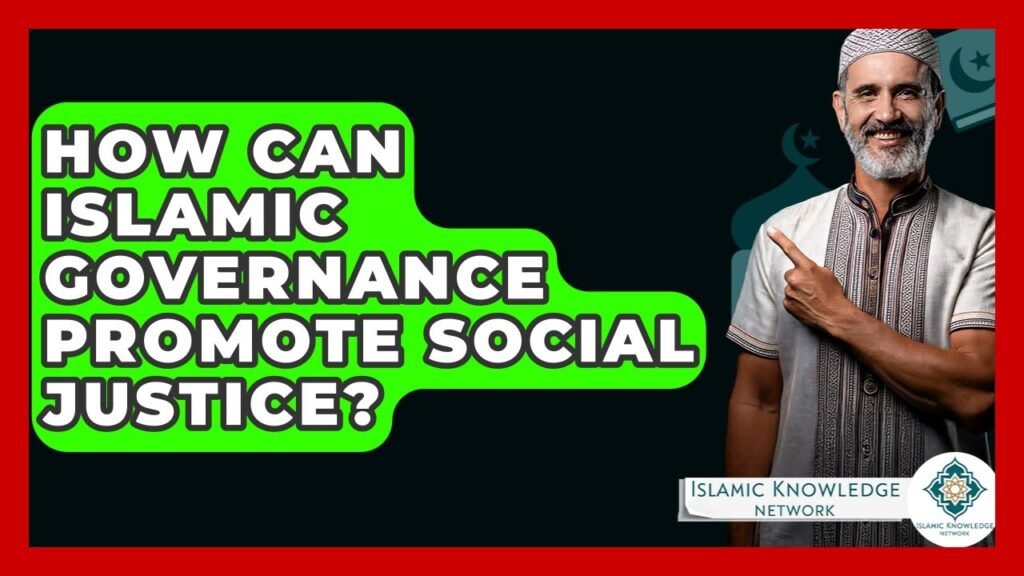You are here to read: How Can Islamic Governance Enhance Social Justice Today? – A Thoughtfully Written Guide Offering Spiritual Wisdom and Travel Advice for Every Pilgrim who is going on holy journey of Hajj or Umrah.
In the quest for a just and equitable society, the principles of Islamic governance offer a profound framework for promoting social justice. Rooted in the teachings of the Quran and the Sunnah, Islamic governance emphasizes the importance of moral integrity, community welfare, and equitable resource distribution. This approach not only nurtures individual rights but also reinforces collective responsibilities, fostering an environment where every member of society is valued and supported. By prioritizing ethical leadership and accountability, Islamic governance can serve as a catalyst for transformative social change.
As we delve into the intersection of Islamic governance and social justice, it is essential to engage with contemporary practices that align with these ideals. At Airlink Hajj and Umrah, we believe in the importance of these discussions, especially as we share valuable insights and updates on Hajj and Umrah on our blog. Understanding the principles of Islamic governance can enhance our collective journey towards justice and unity, reminding us of the shared responsibilities inherent in our faith. Join us as we explore how these guiding tenets can create a more equitable society, benefiting not only individuals but the community at large.
How Can Islamic Governance Enhance Social Justice Today?
Islamic governance, rooted in the principles of justice, equality, and compassion, offers a robust framework for enhancing social justice in today’s society. By prioritizing ethical governance based on Islamic teachings, leaders can address systemic inequalities and promote the welfare of all citizens. For instance, implementing Zakat and Sadaqah systems can ensure wealth redistribution, helping those in need and reducing poverty levels.
Moreover, Islamic governance emphasizes the importance of consultation (Shura) and community participation. Engaging citizens in decision-making processes can lead to more equitable policies that reflect the diverse needs of the population. This approach fosters a sense of belonging and responsibility, encouraging individuals to contribute to the community’s wellbeing.
In today’s global context, where many are seeking spiritual guidance, platforms like Airlink Hajj and Umrah provide valuable resources, including updates on Hajj and Umrah. These pilgrimages reinforce the importance of unity and social harmony, encouraging individuals to engage in acts of kindness and charity. By integrating the principles of Islamic governance with community engagement and outreach, we can pave the way for a more just and equitable society for all.
FAQ on “How Can Islamic Governance Enhance Social Justice Today?”
FAQs: How Can Islamic Governance Enhance Social Justice Today?
1. What are the core principles of Islamic governance that promote social justice?
Islamic governance is grounded in principles such as equity, compassion, and accountability, which aim to ensure that all individuals receive fair treatment and opportunities regardless of their social or economic status.
You're at the middle of this awesome post at AirlinkHajjandUmrah.com through: How Can Islamic Governance Enhance Social Justice Today?. Keep reading, it gets better!
2. How does Islamic law address economic inequalities?
Islamic law, or Sharia, includes mechanisms like zakat (charitable giving) and prohibitions on exploitative practices such as usury, which are designed to redistribute wealth and reduce economic disparities within society.
3. In what ways can Islamic governance influence the protection of minority rights?
Islamic teachings emphasize the protection of religious and ethnic minorities, advocating for their rights and welfare, which can be reinforced through governance policies that promote inclusion and prevent discrimination.
4. How can Islamic governance foster community participation in decision-making?
Islamic governance encourages consultation (Shura) as a means for community involvement in governance processes, allowing citizens to express their views and contribute to policies that affect their lives, thereby enhancing social justice.
5. What role do education and awareness play in achieving social justice within an Islamic framework?
Education and awareness are vital in fostering a culture of justice and equity, as they empower individuals to understand their rights and responsibilities, enabling them to advocate for social justice within their communities and society at large.
That wraps up How Can Islamic Governance Enhance Social Justice Today?. Thanks for sticking with us till here! Share this: How Can Islamic Governance Enhance Social Justice Today? with your friends.
Check our homepage at Air Link Hajj & Umrah for more awesome updates.
Some interesting posts are: 1: Umrah Mubarak, 2: When is Umrah closed 2026?, 3: When does Umrah start after Hajj 2026?
Mushu, an experienced Saudi Arabia traveler and writer, shares insightful tips and spiritual reflections to enhance Hajj and Umrah journeys for fellow pilgrims. He has been to Makkah and Madina from 2016 to 2023 many times and his posts will reflect this.







